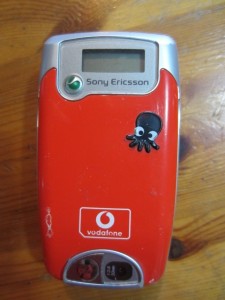I love recycling. It is not only a money-saver, but also brings out your personal creativity, enhances sustainability, with the latter being the most important of all – local and global sustainability have a great impact on the economy, climate and environment.
So when my brother phoned me the other day to tell me he had dropped his phone into the loo, but got a 100 euro refund for it from the Deutsche Telekom for his exchange, I was tickled about this quirky exchange.
Unfortunately, this kind of sale ended on 4 March, but we can be sure of another one coming soon.
But if you do want to donate your mobile phone, exchange it for a coupon, or use it directly towards your next purchase (watch for this special kind of sale), than you can do so at any Telekom Shop in your area.
In Germany, more than 80 million mobile phones are hidden away in drawers – there must be at least two cells in our own drawer.
Telekom uses the proceeds to support the Deutsche Umwelthilfe e.V. (German environmental aid group). More information about mobile phone recycling on their website: t-mobile.de handy ruecknahme in German.

Sony Ericsson mobile phone
This one had been passed on down the line – starting with my niece, who passed it on to our son, who then passed it on to his younger sister as a Christmas present (!) a couple of years later. It has been in our home for at least 12 years, with the last five years spent in the drawer.
What an immobile life.



